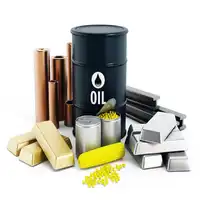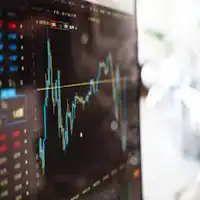Commodities are essential goods that are used in various industries and can be traded on the futures market. Trading in commodity futures serves two main purposes: risk management for businesses and speculation for investors.
For businesses, commodities futures offer a way to mitigate the risk associated with price fluctuations. By entering into futures contracts, businesses can secure the purchase or sale of commodities at a predetermined price, ensuring price stability and protecting themselves against unexpected price increases or decreases. This allows businesses to plan their operations more effectively and reduce uncertainty in their supply chains.
What Are Commodities?
Commodities play a significant role in both business operations and financial markets. They are goods or items of value that are interchangeable within the same class or type. While there may be slight variations in quality, these differences are not significant enough to materially impact their value. Commodity contracts are defined by minimum quality standards, ensuring that they meet the required criteria for exchange.
Commodities are commonly used as inputs in various industries, such as oil in manufacturing or precious metals like gold in jewelry making. However, industrial demand is not the sole driver of the commodity market. Commodities can also be traded for speculative purposes, where investors seek to profit from price movements.

The interchangeability of commodities plays a crucial role in their exchange on financial markets. It enhances market liquidity and facilitates ease of trading. In addition to tangible goods, commodities can also include non-physical assets like currencies and indexes. As long as something meets the criteria of uniformity and is sought after for future contract trading, it can be treated as a commodity in the market.
Commodities and the Futures Market
Commodities trading primarily takes place in the futures market, where futures contracts are used. These contracts specify the delivery of the commodity at a predetermined future date. The purpose of the commodities market is not necessarily to buy or sell physical commodities immediately, but rather to establish prices for future transactions. This allows participants, such as farmers or producers, to hedge against the risk of price fluctuations.

For example, a farmer may use futures contracts to secure a certain price for their crops at the time of harvest, while a producer of goods may want to lock in a specific purchase price for raw materials in the future. By entering into futures contracts, these parties can manage their price risk effectively.
Although some commodity futures contracts involve the physical delivery of the underlying commodity, the majority of contracts are settled in cash. This means that instead of exchanging the physical commodity, the parties settle the contract based on the price difference between the contract and the prevailing spot price. Cash settlement is more common because futures contracts often change hands multiple times, and the final holders may not have a specific interest in taking delivery of the commodity. However, it’s important to note that some futures contracts do require physical delivery of the commodity.
Overall, the futures market provides a mechanism for participants to mitigate price risk and establish future prices for commodities, even if physical delivery is not the primary objective of most futures contracts.
Commodities Speculation
The commodities market attracts not only participants interested in physical possession of the commodities but also financial speculators who aim to profit from price movements without any intention of taking delivery of the actual goods. This speculative aspect of commodities trading is similar to derivatives, where money is exchanged based on the underlying asset without the physical transfer of the asset itself.
Unlike stocks or bonds, where investors typically take possession of the underlying securities, many commodities contracts are never executed by investors because they involve goods they have no use for. The ease of entering and exiting positions in the commodities market, coupled with its liquidity, allows traders to engage in speculative trading without the need for physical delivery.
The active trading and availability of commodities on the spot market prevent traders from getting stuck with physical goods. Instead of taking delivery, traders aim to profit from price fluctuations and hold positions for short periods, including intraday trading.
Investing in commodities can provide diversification as they often have low correlation with other financial investments like the stock market. Gold, in particular, is known for its inverse correlation with other assets, serving as a potential hedge against market risks.
In addition to the futures market, commodities can also be traded in the forward market. While futures contracts are traded on exchanges, forward contracts are similar agreements that are not traded on exchanges, offering alternative avenues for commodity trading.
Ways To Trade in Commodities
Commodity exchange-traded funds (ETFs) provide individual investors with a convenient way to trade in commodities. These ETFs track specific commodities and may hold physical goods for speculation purposes in addition to futures contracts. By trading commodity ETFs, investors can benefit from professional management without having to closely monitor the commodities market themselves.
Commodity ETFs offer added convenience and are particularly advantageous for investors who lack the time or expertise to actively trade commodities. With professional management, investors can align their goals with those of the fund managers, who handle the day-to-day operations and decision-making.
Commodity ETFs may also engage in trading derivatives such as futures options, which carry higher risk compared to trading in futures contracts alone. It is essential to have a thorough understanding of these complex instruments before engaging in options trading. Entrusting the management of such strategies to experienced fund managers can mitigate the associated risks.
However, it is still possible for individuals to trade futures options on their own. Caution must be exercised when allocating a significant portion of one’s portfolio to options, as there is a risk of losing the entire investment if the trades do not go as planned.
For those interested in broad speculation on the commodities market itself, commodity indexes are available. These indexes represent baskets of commodities, similar to stock or bond indexes that comprise various securities. Speculation in commodities is based on anticipating future supply and demand factors, and this market attracts a significant amount of speculation and trading activity.
Trading commodities requires skill and knowledge as they do not have the same long-term upward trend as stocks or provide income like bonds. Commodities are driven purely by speculation on future price movements, offering opportunities for skilled traders or those willing to develop the necessary expertise in commodity trading.
What are the popular commodities for investing and trading in South Africa?
In South Africa, popular commodities for investing and trading include gold, platinum, palladium, coal, iron ore, and agricultural products such as maize and wheat.
How can I invest in commodities in South Africa?
You can invest in commodities in South Africa through various avenues, including commodity-focused mutual funds, exchange-traded funds (ETFs), commodity futures contracts, and commodity trading platforms offered by brokerage firms.
Are there any specific regulations for commodity trading in South Africa?
Yes, commodity trading in South Africa is regulated by the Financial Sector Conduct Authority (FSCA) and the Johannesburg Stock Exchange (JSE), which oversee the trading of commodity futures contracts and derivative products.
What are the main factors that impact commodity prices in South Africa?
Commodity prices in South Africa are influenced by global supply and demand dynamics, currency exchange rates, geopolitical events, weather conditions, government policies, and global economic factors.
Can I trade commodities on the Johannesburg Stock Exchange (JSE)?
Yes, the JSE offers commodity futures contracts that allow investors and traders to participate in the price movements of various commodities.
Are there any tax considerations for commodities investing in South Africa?
Tax regulations may apply to profits made from commodities trading in South Africa. It is advisable to consult with a tax professional to understand the specific tax implications and requirements.
What are the advantages of investing in commodities in South Africa?
Investing in commodities in South Africa can provide diversification benefits to a portfolio, as well as potential protection against inflation and currency fluctuations. The country’s rich resource base makes it a significant player in the global commodities market.
Are there any risks associated with commodities investing in South Africa?
Commodities investing in South Africa carries risks such as price volatility, geopolitical risks, regulatory changes, operational risks in the mining sector, and exposure to currency fluctuations.
Can I trade commodities online in South Africa?
Yes, there are online trading platforms and brokerage firms in South Africa that provide access to commodity markets, allowing investors to trade commodities electronically.
Is it necessary to have prior knowledge or experience in commodities trading to invest in South Africa?
While having knowledge and experience in commodities trading can be beneficial, it is not a requirement to invest in commodities in South Africa. Investors can seek guidance from financial advisors or engage with reputable brokerage firms to make informed investment decisions.




